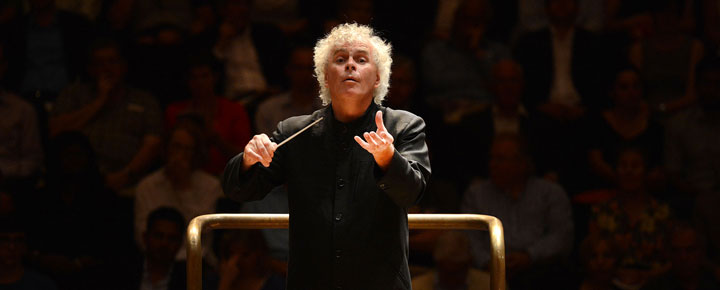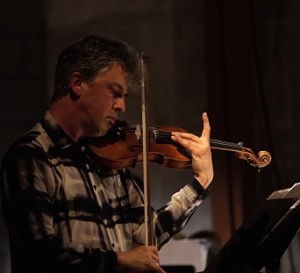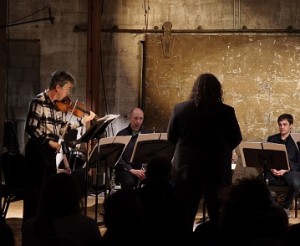
The London Symphony Orchestra announced today the appointment of Sir Simon Rattle as its Music Director.
He will take up his appointment in September 2017, following in the footsteps of previous Principal Conductors including André Previn, Michael Tilson Thomas, Sir Colin Davis and Valery Gergiev. As Music Director he will be involved in every aspect of the LSO’s work as well as championing the importance of music and music education.
At the announcement of his appointment, Simon Rattle said: “During my work with the LSO over the last years, I noticed that despite the Orchestra’s long and illustrious history, they almost never refer to it. Instead, refreshingly, they talk about the future, what can they make anew, what can they improve, how can they reach further into the community. In terms of musical excellence, it is clear that the sky’s the limit, but equally important, in terms of philosophy, they constantly strive to be a twenty-first century orchestra. We share a dream in which performing, teaching and learning are indivisible, with wider dissemination of our art at its centre. I cannot imagine a better or more inspiring way to spend my next years, and feel immensely fortunate to have the LSO as my musical family and co-conspirators.”
Simon Rattle outlined his vision for universal access to music, with children and young people at its heart. He called for new standards in making world-class music available to all. He stated his aim that every musician should be engaged in composing, improvising, mentoring and performing; that the creation of new music will be central to the process, working with leading composers and teachers; and that his appointment will generate new partnerships between London and the whole country to confirm the UK as a world leader in the arts.
Simon Rattle is currently Chief Conductor and Artistic Director of the Berliner Philharmoniker, where he was appointed in 2002. His first appearance with the London Symphony Orchestra was in October 1977, at the age of 22. He conducted the LSO at the opening ceremony of London 2012 Olympic and Paralympic Games, memorably performing Chariots of Fire with Rowan Atkinson. Most recently, in January this year, he was acclaimed for his two concerts with the LSO of Schumann, Stravinsky, Webern, Berg and Ligeti at the Barbican Centre.
Lennox Mackenzie, Chairman of the LSO, said: “I am thrilled that Sir Simon Rattle has accepted our invitation to lead the Orchestra into the future. On behalf of our whole Orchestra, we welcome him as our Music Director at this hugely important moment in the LSO’s history. I would also like to offer the Orchestra’s sincere thanks to Valery Gergiev who has been the LSO’s Principal Conductor since 2007 and who steps down from his position at the end of this year.”
Kathryn McDowell, Managing Director of the LSO, said: “This is the realisation of a dream, to bring Simon Rattle back to his home country to lead the extraordinary musicians of the LSO. We look forward to a new chapter of ambitious music-making that reaches deep into the communities we serve and touches people’s lives with the power of music.”
Sir Nicholas Kenyon, Managing Director of the Barbican Centre, said: “We are delighted to welcome Sir Simon Rattle to the LSO, our resident orchestra since the Centre opened. The presence of a world-class orchestra at the heart of this world-class arts centre, serving the widest range of audiences across London and beyond, has been an indispensable part of the Barbican’s success. We look forward to a period of thrilling development as Simon Rattle takes the LSO to ever greater heights of musical achievement and service to the community.”
Professor Barry Ife, Principal of the Guildhall School of Music & Drama, said: “Sir Simon Rattle’s commitment to the next generation of musicians and to music education is world renowned. His appointment as Music Director of the LSO is an exciting opportunity, particularly for the students of the Guildhall School who regularly perform alongside the LSO’s musicians.”


